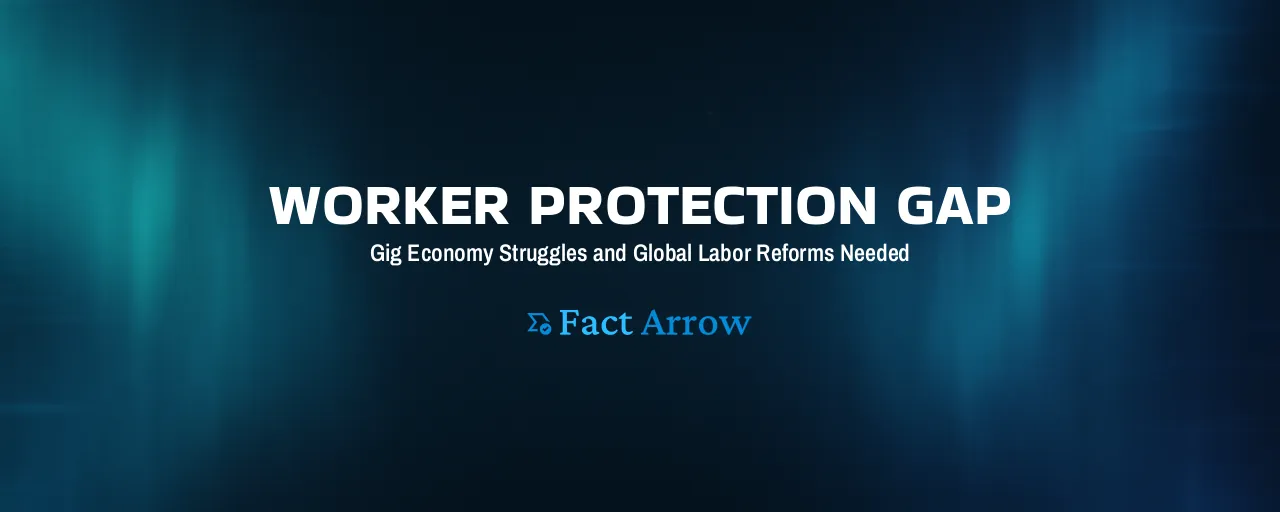The Gig Economy's Human Toll
The gig economy pulses with possibility. Apps like Uber and Fiverr connect millions to work, offering flexibility for drivers, coders, and delivery workers. Yet, this system hides a harsh truth: many workers lack basic protections. No health insurance, no paid leave, no stability. The U.S. Department of Labor's recent stance at the International Labour Conference in Geneva, prioritizing platform freedom over global regulations, prompts a vital question. Why defend a system that leaves workers vulnerable?
Gig work provides income for those who need flexibility, students, parents, or rural residents. But it exploits their precarity. Unpredictable pay, algorithmic control, and sudden deactivation haunt workers. In 2024, the global gig economy reached $450 billion, fueling growth but exposing millions to risk. How can we praise innovation while workers struggle to afford basics?
Led by Deputy Secretary Keith Sonderling, the Department of Labor frames the gig economy as a symbol of American progress. It warns that international standards could harm jobs and growth. This perspective assumes platforms and workers share equal gains. History disagrees. From early factories to modern apps, unchecked systems prioritize profit until reforms demand fairness.
Global Standards as a Lifeline
At the 113th International Labour Conference, trade unions and human rights advocates urged a binding convention for gig workers. They sought minimum wages, social security, and bargaining rights, protections already taking root globally. Europe's directives, India's 2020 Social Security Code, and Spain's driver laws reflect a growing consensus for equity. These measures provide foundations for workers who sustain our economy.
The U.S. has an opportunity to lead. Democratic lawmakers have pushed for employee classification to guarantee benefits like health coverage and unemployment insurance. California's AB5 aimed to reclassify gig workers, while Biden-era rules introduced a six-factor test to prevent misclassification. These align with global efforts, showing we can safeguard workers while fostering innovation.
Some claim global standards undermine national autonomy or burden businesses. They argue flexibility drives the gig economy's success. But whose flexibility? Platforms thrive by offloading costs onto workers. A driver paying for gas or a freelancer without savings isn't empowered, they're trapped. With 16 percent of U.S. workers on gig platforms, most lack emergency funds. Global standards ensure dignity.
Fairness Fuels True Innovation
The Department of Labor's emphasis on AI leadership and market freedom misses a critical point; innovation flourishes with justice. AI-powered platforms have transformed work, but they've also deepened surveillance and wage suppression. Algorithms dictate schedules or penalize workers without transparency. The FTC's 2022 gig economy probe exposed these issues, demanding accountability. Why protect a system that exploits its own workforce?
Past reforms offer guidance. The New Deal secured wages and rights after economic crisis. Today's gig workers need modern protections, portable benefits, reskilling, and privacy safeguards. Countries like Belgium and Italy use presumption tests to classify workers fairly. The U.S. can adopt similar approaches, proving equity strengthens progress.
Sonderling's AI roundtable aims high but falls short. Promoting U.S. technology shouldn't mean ignoring workers. The ILO's global standards provide a framework to balance growth and fairness. By 2026, the gig economy may hit $500 billion. Without protections, inequality will soar. Are we building a future where only platforms prosper?
A Future That Values Workers
The U.S. embraces global standards. Embracing global standards means leading with integrity. Workers need livable wages, benefits for security, and a voice against unfair practices. Democratic proposals for portable benefits and federal classification rules lay the groundwork. These can align with ILO conventions, setting a global standard.
Rejecting international efforts as job-killers ignores reality. Nations with protections maintain robust economies. The U.S. risks lagging if it clings to outdated contractor models. Workers seek fairness. The Department of Labor must advocate for workers.
Gig workers keep our world moving, delivering meals, building apps, driving us home. Their labor powers progress. It's time their work secures their futures. By supporting global standards, the U.S. can create an economy where innovation lifts everyone. The path is clear: prioritize workers, and we all rise.
